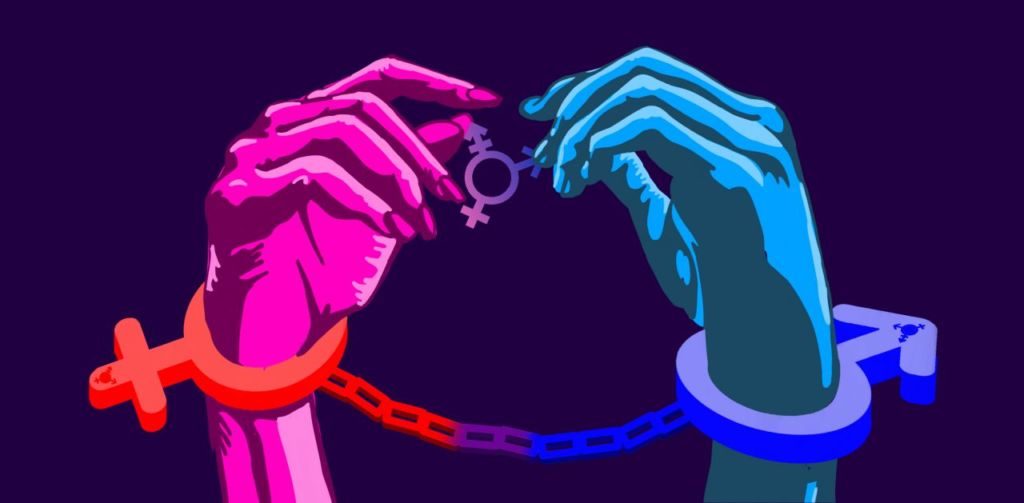
As we all are familiar with the fact that June is recognized as Global Pride Month, it denotes the rights and opportunities that the LGBTQ community has and reminds us of the fact that they still lack behind in terms of equality. Even after their struggles, the whole community is facing discrimination and hatred in various manners. Over the past few years, there have been various amendments regarding the security of the rights of the LGBTQ community in the Indian Constitution. The court in recent years has made several landmark judgments concerning the rights and freedom of the transgender community in the famous case of NALSA v. Union of India.
However, concerning the status of the transgender community in India, the new Transgender Person (Protection of Rights) Act, 2019 has been a disappointment for not only a certain community but for the nation as a whole and has escalated several defaults. The central government took the help of the public to get this act to prevail. Apart from the particular provision of the act that may impede the advancement made for transgender rights, the public feedback process was wrongly timed due to the county-wide lockdown. The lockdown has restricted the movement of the transgender community and has made it very difficult for them to discuss the rules and laws that are provided to them.
The Flawed Act
The Transgender Persons (Protection of Rights) Act, 2019, has disappointed the transgender community. Not only did the act fail to incorporate crucial suggestions from the Parliamentary Standing Committee, but it also failed to address several other issues of the LGBTQ community. Even after, incorporating identities like “genderqueer” and “persons with intersex variations” within the limit of the definition of “transgender,” the Act fails to include people’s rights and responsibilities and has put the entire community at risk of being rejected by the system that certifies people based on medical examination.
While the Act is ought to prevent bias, it does not specify what constitutes discrimination. It also fails to safeguard transgender people who may experience sexual assault, as the Indian Penal Code defines rape in terms of males and women as offender and victim, respectively and there is no particular specification regarding the transgender community. The Act also raises concerns about the government’s idea of “the rescue, protection, and rehabilitation of transgenders,” which might lead to police crackdowns on them, particularly sex workers. In terms of transgender children’s rights, the Bill excludes “gender nonconforming” youngsters and “children with intersex variants.” It falls short of the mark and penalizes surgeries performed on children born with intersex variants to “correct” their bodies to suit the binary gender.
Transgender Act violates the NALSA Judgment

Transgenders were to be considered as a “third gender” under the NALSA v. Union of India judgment, and their constitutional rights were to be protected. It acknowledged that self-identification of one’s gender is sufficient to provide individuals with rights. The Supreme Court further ruled that “sex” discrimination includes not only biological sex but also the “innate notion of one’s gender,” i.e., the gender with which the trans person is identified. The court debated gender identity in-depth, recognizing its importance in the development of one’s distinctive personality and as a fundamental component of living a dignified life. Whilst a significant judgment and milestone in the fight for equal rights of the transgender community, it did not always safeguard their equal rights or ensured a dignified existence.
The parliament tabled a list of legislation in the light of the 2014 judgment dealing with transgender rights. The latest was presented in July 2019 and was later called the Transgender Persons (Protection of Rights) Act, 2019. The Act elicited the transgender community’s adverse reaction in annulling the NALSA judgment. They have claimed that the new law is not only insufficient but will also undermine the advances gained in ensuring the rights of transgenders.
The Transgender Persons Act 2019 requires individuals to file for a ‘Transgender Certificate’ that will designate their gender to be transgendered to recognize their transgender identity legally. However, the new laws compel a person to submit a ‘Certificate of Identity’ by a psychologist. In addition, if a person undergoes surgery to change the gender to male or female, a “revised certificate” issued by the District Magistrate is necessary. The regulations make it difficult and invasive to identify and reassign gender. The guidelines on how accuracy is to be assessed are unclear.
Furthermore, the Act declares that assaulting transgenders is a crime punishable with imprisonment ranging from six months to two years. A cisgender (a person whose gender identity matches their sex at birth) woman may face a life sentence or possibly the death penalty for the same act. The granting of a reduced penalty perpetuates the trans community’s unequal standing. The Act also lacks clarity about access to assistance and civic rights for trans persons. The NALSA decision urged the government to implement affirmative action policies to “raise the presence of transgender people in educational institutions and public positions.” However, the new regulations include no explicit mention of affirmative action in education, healthcare, or employment, or civil rights relating to marriage, adoption, or property, etc.
Beyond the scope of the Act
The 2019 Act fails to recognize individuals with intersex, gender, and socio-cultural identities. Its regulations are outside the scope of the Act, according to activists. The regulations enable the District Magistrate to reject a trans certificate application and criminalize what the Act terms ‘false claims.’
The Act of 2019 breaches the NALSA judgment by granting the District Magistrate arbitrary power to reject the application. There is also a restricted period for the appeal process. A person may apply to the District Magistrate for a Trans certificate and within 60 days the District Magistrate must award or reject the request. Based on this certificate, the trans person must apply to the District Magistrate for a male/female binary certificate backed by a certificate for surgery from a medical superintendent within 15 days. Furthermore, the legislation contravenes the decision of NALSA by imposing Sex Reassignment Surgery (SRS) mandatorily. Only one column of the form prescribed by Law, terms ‘transgender’ thus it has failed to recognize culture-specific multiple gender identities.
Indeed, Section 4(2) of the Act recognizes the right to self-identified autonomous gender, but the regulations limit the gender and violate the act itself. It is strange for the government to answer the one question it asks of us. The Act maintains this right solely in the defining component, but not in the provision that requires State acknowledgment of identity.
Although there is just one section dedicated to welfare, there is no list of precise ways in which welfare benefits must be supplied, and no mention of reservations or other types of benefits. The regulations only apply to the identity problem and not the subsequent welfare concerns. The Act, according to trans activists, is merely a bureaucratic exercise that has obliterated the essence of the NALSA decision. Clause 8 of the regulations provides that the District Magistrate must notify the applicant if the application is refused, but there is no time restriction. Clause 9 refers to the right to appeal, but it does not specify who is the concerned appellate authority or when the appeal shall be resolved.
It appears to be the result of a colonial hangover, with the bureaucracy wielding excessive influence over human life. The demand for obtaining a Sex Reassignment Surgery (SRS) certificate from the hospital’s medical superintendent is unreasonable. Many trans people have had operations in the past, and SRS is not a one-size-fits-all procedure. Many aspects of the laws are unknown, such as the status and rights of trans people who have had surgery in the past and may not be able to present paperwork at this time.
The activists are also against the regulations that punish transgender individuals who make “false claims.” “Our core demand is legislation that protects transgender people,” they say. Such measures already exist in the country’s general penal code (the IPC). A substantial proportion of trans individuals are illiterate or have not been educated. There is a risk of misunderstandings and mistakes. To suggest that such errors may result in disciplinary action is highly problematic and goes against the spirit of NALSA.
At this moment, the activist groups recognize that they do not represent the whole community. Because of the limits on movement during the various lockdowns, many transgender people’s voices have gone unheard. They’ve also asked for a pause to the input process while the matter is still pending before the Supreme Court until the entire community is allowed to gather in groups and examine the Act.
Conclusion
In a society where there are several reasons for large reservations, the community that is synonymous with social backwardness is rarely considered. As a result, it is important to not only enact laws but also to put them into practice to raise the upbringing of the transgender population to the rostrum of human dignity. The fact that the legislation specifically bans discrimination against trans people in education, employment, health care, and a variety of other areas provides fertile ground for contesting the statute’s discriminatory provisions. Intersex persons are likewise recognized under the new law, but they are not afforded any special rights.
Simply put, the process of legal recognition and ownership over one’s own body should be kept distinct from any medical interventions. However, if a person’s identity or transition process needs medical assistance, such assistance should be available and accessible. The Bill has made a mockery of transgender people’s lives, and Parliament’s approval of it has betrayed a community that has campaigned for their rights for decades. The transgender community, on the other hand, is adamant in its determination to fight back against this injustice.
India can, and should, do better.